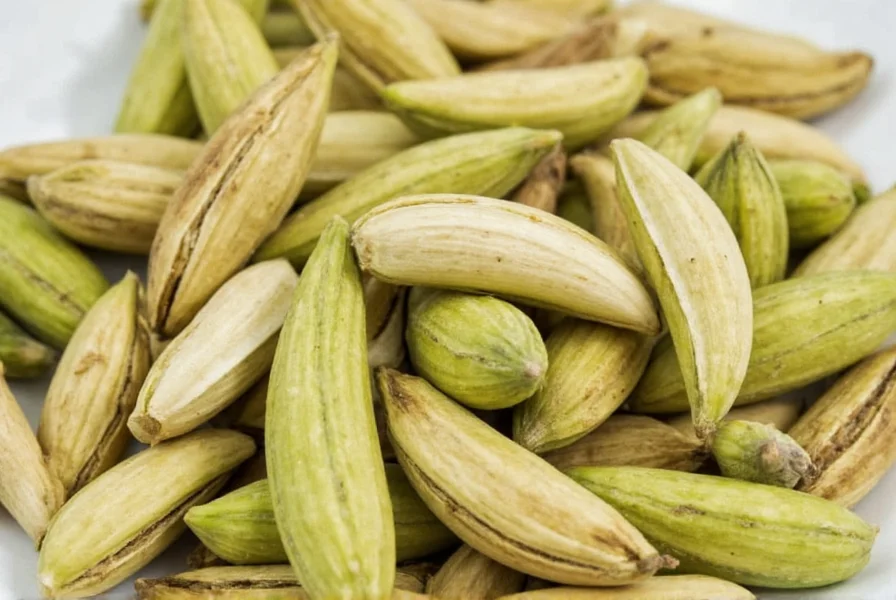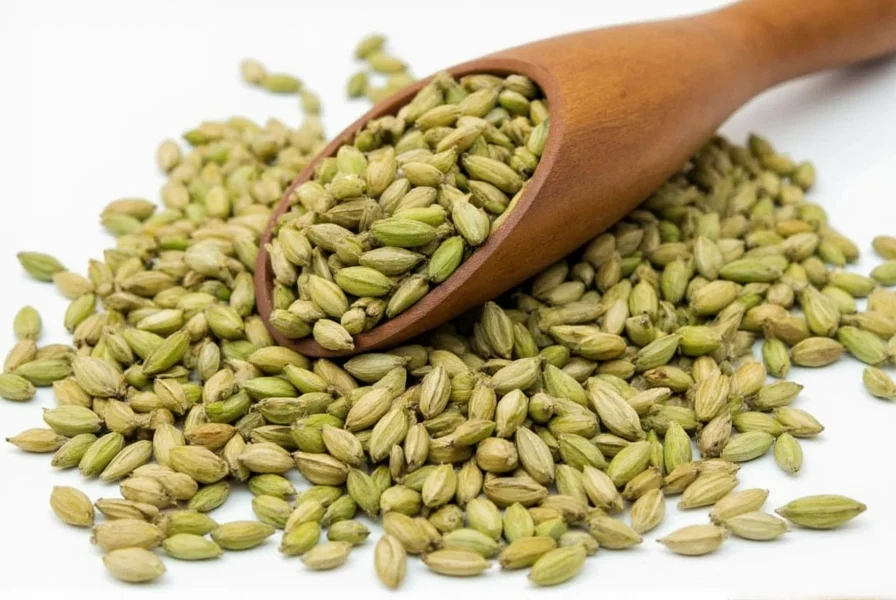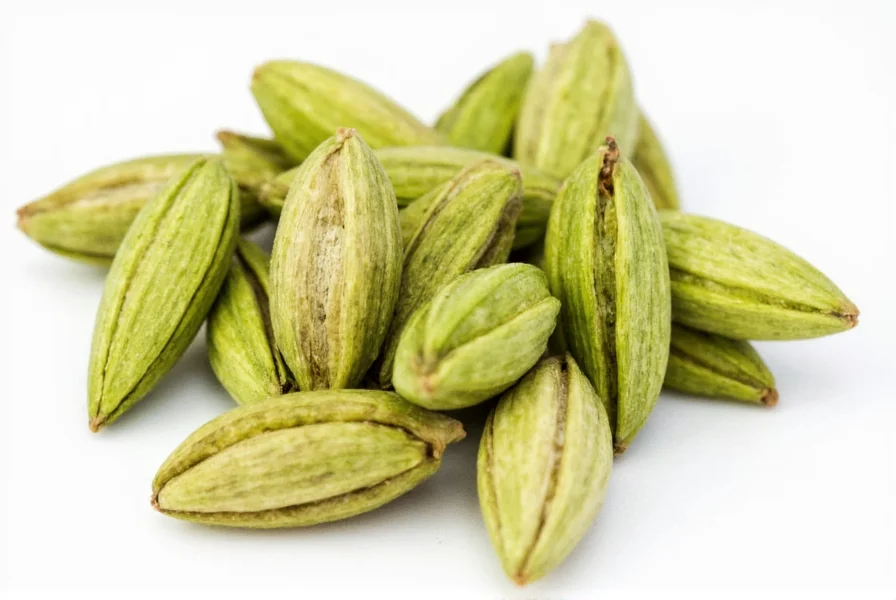Cardamom, often called the "queen of spices," has been valued for centuries not just for its distinctive flavor but for its numerous health-promoting properties. This small but powerful seed pod from the Elettaria cardamomum plant delivers a complex blend of bioactive compounds that contribute to both culinary excellence and potential health benefits.
What Exactly Is Cardamom?
Cardamom belongs to the ginger family (Zingiberaceae) and comes in two main varieties: green cardamom (the most common and prized type) and black cardamom. Green cardamom pods contain small black seeds with a citrusy, floral aroma, while black cardamom has a smokier profile due to the drying process. Native to India and Sri Lanka, cardamom has been used in Ayurvedic medicine for over 3,000 years and remains one of the world's most expensive spices by weight.

Culinary Applications of Cardamom
Chefs worldwide prize cardamom for its versatility in both sweet and savory preparations. In Scandinavian baking, it's essential in lussekatter (saffron buns) and pepparkakor (ginger cookies). Indian cuisine uses it in garam masala, biryanis, and chai tea. Middle Eastern coffee often includes cardamom for its aromatic complexity. When cooking with cardamom, remember that:
| Dish Type | Cardamom Application | Recommended Amount |
|---|---|---|
| Baked Goods | Ground in doughs and batters | 1/4-1/2 tsp per cup of flour |
| Rice Dishes | Whole pods in cooking liquid | 2-3 pods per cup of rice |
| Beverages | Crushed seeds in tea or coffee | 2-3 pods per serving |
| Curries | Ground in spice blends | 1/2-1 tsp per recipe |
Science-Backed Health Benefits of Cardamom
Modern research continues to validate many traditional uses of cardamom. Let's examine the evidence behind cardamom's health benefits:
Digestive Health Support
Cardamom has demonstrated significant potential for improving digestive function. Studies show that cardamom extract can increase salivary amylase activity, enhancing carbohydrate digestion. Its carminative properties help reduce gas and bloating by relaxing gastrointestinal muscles. Research published in the Journal of Agricultural and Food Chemistry found that cardamom compounds stimulate bile production, which aids fat digestion and nutrient absorption.
Antioxidant Powerhouse
Cardamom ranks among the most antioxidant-rich spices. A 2021 analysis in Antioxidants journal revealed that cardamom contains high levels of flavonoids and terpenes that combat oxidative stress. These compounds neutralize free radicals that contribute to chronic inflammation and cellular damage. Regular consumption of cardamom may help protect against age-related cognitive decline and certain chronic diseases.
Cardiovascular Protection
Several studies indicate cardamom's potential benefits for heart health. Research in the Indian Journal of Biochemistry and Biophysics demonstrated that cardamom supplementation significantly reduced blood pressure in prehypertensive individuals. The spice's high potassium content helps balance sodium effects, while its antioxidant compounds may prevent LDL cholesterol oxidation—a key factor in atherosclerosis development.
Blood Sugar Regulation
Emerging evidence suggests cardamom may help regulate blood glucose levels. A 2020 study in Nutrition Research found that cardamom extract improved insulin sensitivity in animal models. The spice's manganese content (providing 100% of daily needs in just 2 teaspoons) plays a crucial role in carbohydrate metabolism. While more human studies are needed, preliminary results show promise for cardamom's role in metabolic health.
Respiratory Benefits
Traditional medicine has long used cardamom for respiratory conditions, and modern science provides some support. Cardamom's cineole content acts as a natural expectorant, helping clear mucus from airways. Research in Phytotherapy Research indicates that cardamom compounds may reduce airway inflammation, potentially benefiting those with asthma or bronchitis. Many people find relief from congestion by inhaling steam with crushed cardamom pods.

Traditional Medicinal Applications
Ayurvedic practitioners have used cardamom for millennia as a digestive aid and breath freshener. Traditional Chinese Medicine incorporates cardamom to warm the spleen and stomach. In Middle Eastern folk medicine, cardamom has been used to treat urinary tract infections and kidney stones. While not all traditional uses have scientific validation, many align with modern research findings about cardamom's properties.
Practical Ways to Incorporate Cardamom
To maximize cardamom's benefits, consider these practical applications:
- Cardamom tea: Crush 3-4 pods and steep in hot water for 10 minutes
- Smoothie booster: Add 1/4 teaspoon ground cardamom to fruit smoothies
- Rice enhancement: Cook with whole pods for aromatic basmati rice
- Coffee addition: Grind with coffee beans for a spiced morning brew
- Dessert accent: Sprinkle ground cardamom on baked apples or pears
Considerations and Potential Side Effects
While cardamom is generally safe when consumed in culinary amounts, some considerations apply. People taking blood thinners should consult their doctor before consuming large medicinal quantities, as cardamom may have mild anticoagulant effects. Those with gallstones should exercise caution, as cardamom stimulates bile production. In rare cases, cardamom may cause allergic reactions, particularly in individuals sensitive to other members of the ginger family.
Conclusion
Cardamom's value extends far beyond its delightful flavor. This ancient spice offers a compelling combination of culinary versatility and potential health benefits supported by growing scientific evidence. From aiding digestion to providing antioxidant protection, cardamom represents a valuable addition to a health-conscious diet. When selecting cardamom, choose whole pods over pre-ground spice for maximum freshness and potency, storing them in an airtight container away from light and heat. By incorporating this aromatic spice into your cooking and beverages, you can enjoy both its distinctive taste and its potential wellness benefits.
Frequently Asked Questions
What are the main health benefits of cardamom?
Cardamom offers several evidence-supported health benefits including improved digestion, antioxidant protection, potential blood pressure reduction, and respiratory support. Its compounds help stimulate digestive enzymes, combat oxidative stress, and may improve insulin sensitivity. The spice contains high levels of manganese, potassium, and phytochemicals that contribute to these health-promoting effects.
How much cardamom should I consume daily for health benefits?
For general health benefits, consuming 1-3 grams of cardamom daily (approximately 1/2 to 1 1/2 teaspoons) is considered safe and potentially beneficial. This could be achieved through culinary use in cooking, adding to beverages, or using in baking. Most studies showing health benefits used doses within this range. However, consult with a healthcare provider before using cardamom medicinally, especially if you have existing health conditions or take medications.
Can cardamom help with weight loss?
While cardamom isn't a weight loss miracle, it may support healthy weight management indirectly. Its digestive benefits can reduce bloating and improve nutrient absorption. Some animal studies suggest cardamom extract might influence fat metabolism, but human evidence is limited. Cardamom's ability to add flavor without calories makes it valuable for enhancing the taste of healthy dishes and beverages, potentially reducing the need for added sugars.
Is cardamom safe during pregnancy?
Cardamom is generally considered safe during pregnancy when consumed in normal culinary amounts found in food. However, pregnant women should avoid consuming large medicinal quantities of cardamom, as high doses might stimulate uterine contractions. As with any dietary change during pregnancy, it's advisable to consult with a healthcare provider before using cardamom for therapeutic purposes.
How does cardamom compare to other spices for health benefits?
Cardamom stands out for its unique combination of digestive benefits and respiratory support. While turmeric has stronger anti-inflammatory properties and cinnamon shows more pronounced blood sugar effects, cardamom offers a broader spectrum of digestive benefits. It contains different phytochemicals than most other common spices, making it complementary rather than superior. For maximum health benefits, incorporating a variety of spices—including cardamom—provides the most comprehensive phytochemical profile.











 浙公网安备
33010002000092号
浙公网安备
33010002000092号 浙B2-20120091-4
浙B2-20120091-4